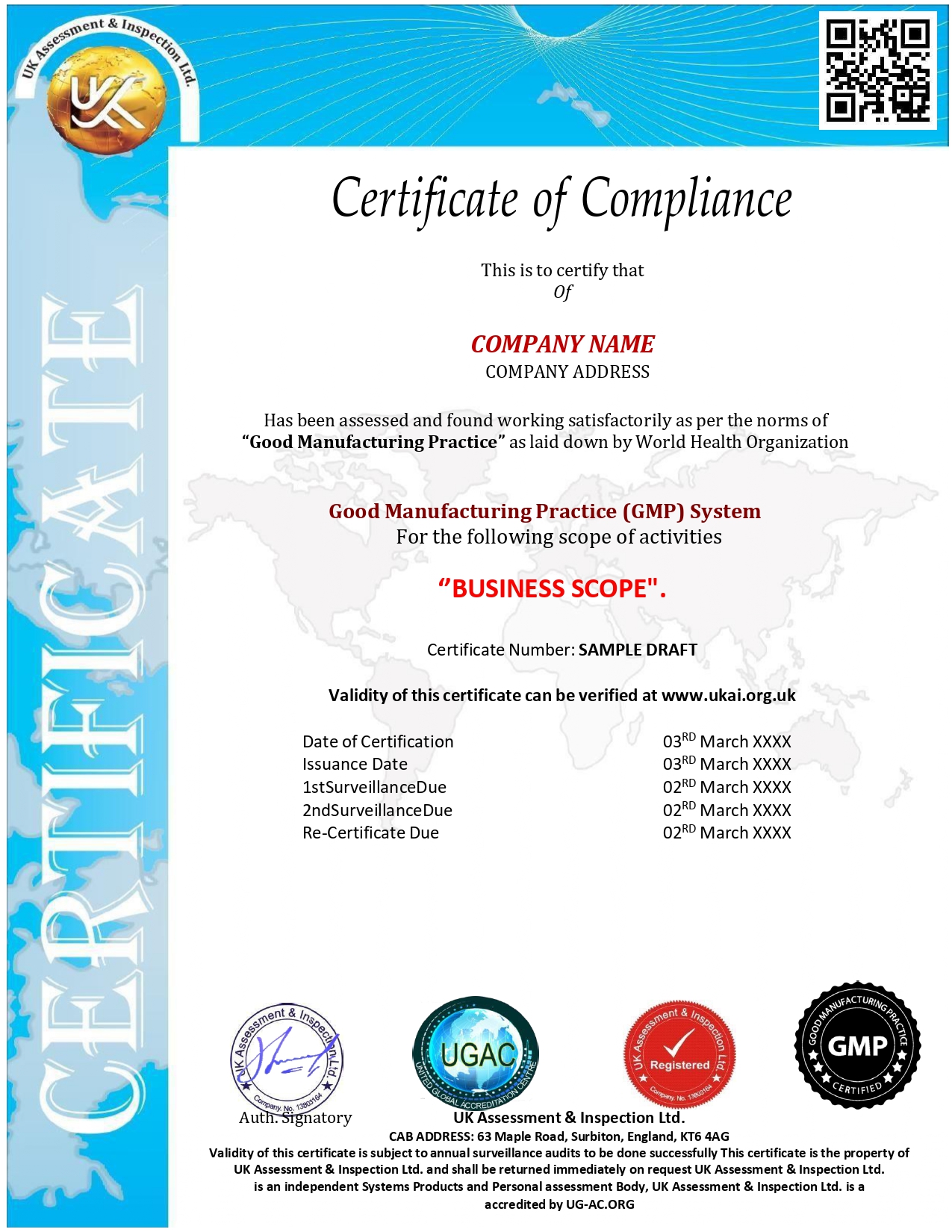
GMP Certification is a globally recognized certification for organizations in the manufacturing industry that ensures products are consistently produced and controlled according to quality standards. The certification is based on the principles of Good Manufacturing Practices (GMP), which ensure product safety, efficacy, and quality. A Non-IAF GMP Certification is issued by a certification body that is not accredited by the International Accreditation Forum (IAF), providing more flexibility while still adhering to GMP standards.
GMP Certification helps organizations maintain high standards of product quality, ensuring that the products are safe, effective, and manufactured to the correct specifications.
Certification demonstrates a commitment to product safety and quality, building trust among consumers and stakeholders that products meet regulatory requirements and quality standards.
By adhering to GMP guidelines, businesses can streamline their manufacturing processes, reduce waste, improve consistency, and increase operational efficiency.
GMP Certification ensures that organizations comply with the necessary regulations and standards in their industry, reducing the risk of product recalls and legal liabilities.
There are two primary types of GMP Certifications:
FilingLounge.com simplifies the GMP Certification process. Below is an overview of the steps:
GMP Certification ensures that products are manufactured in a controlled environment with the necessary precautions to guarantee safety and compliance with health standards.
GMP certification helps organizations comply with industry regulations, ensuring that their manufacturing processes meet local and international standards.
By following GMP practices, organizations can enhance their production systems, improve consistency, reduce errors, and maintain product quality.
Having GMP Certification enhances an organization’s credibility and marketability, as it assures clients, consumers, and regulators of the high quality of its products.
GMP certification requires extensive documentation of manufacturing processes, procedures, and quality controls, which may be challenging for organizations that are not familiar with the requirements.
The certification process can be time-consuming and resource-intensive, particularly for organizations that need to implement new processes or improve existing ones to meet GMP standards.
To be eligible for GMP Certification, an organization must demonstrate that it has the necessary processes, controls, and systems in place to consistently manufacture products that meet regulatory and quality standards.
GMP Certification is valid for three years. Organizations must undergo periodic audits to ensure continued compliance with GMP standards, and they must complete a renewal process to maintain their certification status.
Internal audits are crucial for ensuring that your manufacturing processes remain compliant with GMP standards. Regular audits help identify areas for improvement and maintain the integrity of the certification.
Once certified, organizations must maintain GMP compliance by performing ongoing internal audits, documenting quality control processes, and regularly reviewing manufacturing practices to ensure adherence to GMP standards.
GMP Certification provides organizations with the tools to ensure the quality and safety of their products. By adhering to GMP standards, businesses can strengthen consumer trust, improve operational efficiency, and comply with industry regulations. FilingLounge.com simplifies the certification process, enabling organizations to focus on their core operations while achieving GMP compliance.